Upgrade & Secure Your Future with DevOps, SRE, DevSecOps, MLOps!
We spend hours scrolling social media and waste money on things we forget, but won’t spend 30 minutes a day earning certifications that can change our lives.
Master in DevOps, SRE, DevSecOps & MLOps by DevOps School!
Learn from Guru Rajesh Kumar and double your salary in just one year.
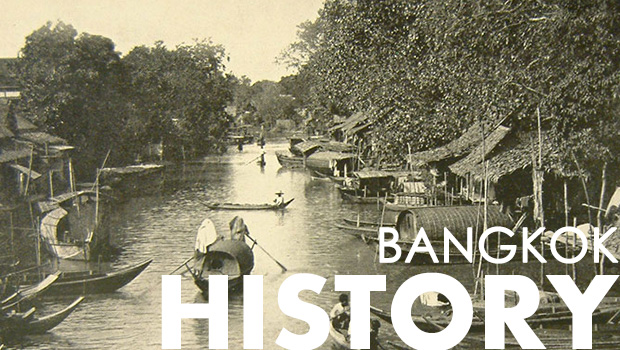
Bangkok, the capital of Thailand, is a large city with a cosmopolitan culture. The history of Bangkok has quite literally been the history of Thailand at large. Many important events have taken place in the city. To understand the culture, people, and everything that exists today here, let’s start from the start. The history of the city can be dated back to the fifteenth century. It was a quiet and straightforward farming and trading area on the banks of river Chao Phraya where small communities lived. It grew in importance during the 15-16th centuries after new waterways and roadways were constructed. After Ayutthaya was burnt in 1767 by the Burmese army, the Thai military established Thon Buri, a community of Bangkok.
1. The Chakri Dynasty
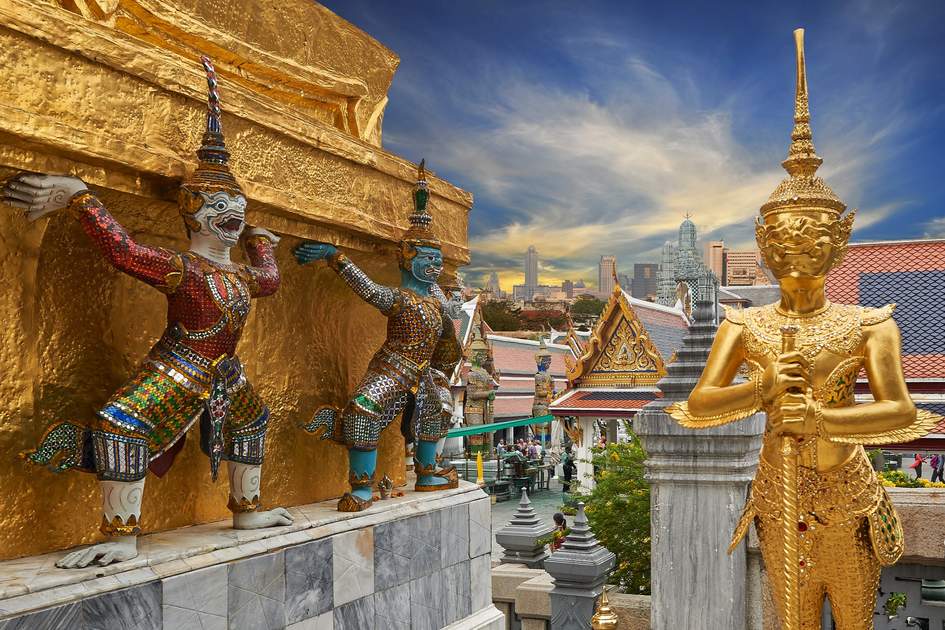
Phraya Chakri, one of Taksin’s generals, came to power and was crowned in 1782 as Phra Yot Fa. He was also popularly known as King Buddha Yodfa or Rama I. He moved the capital to Bangkok and established the Chakri Dynasty. The construction planning of the area led to the development of monasteries, throne halls, residence halls, and palace temples. In 1785, the royal district was completed, and the city was given a name at the consecration ceremony: ‘Great City of Angels, the Repository of Divine Gems, the Great Land Unconquerable, the Grand and Prominent Realm, the Royal and Delightful Capital City full of Nine Noble Gems, the Highest Royal Dwelling and Grand Palace, the Divine Shelter and Living Place of Reincarnated Spirits.’ Foreign traders continued to call the city ‘Bang Makok.’
2. Road Building for Europeans
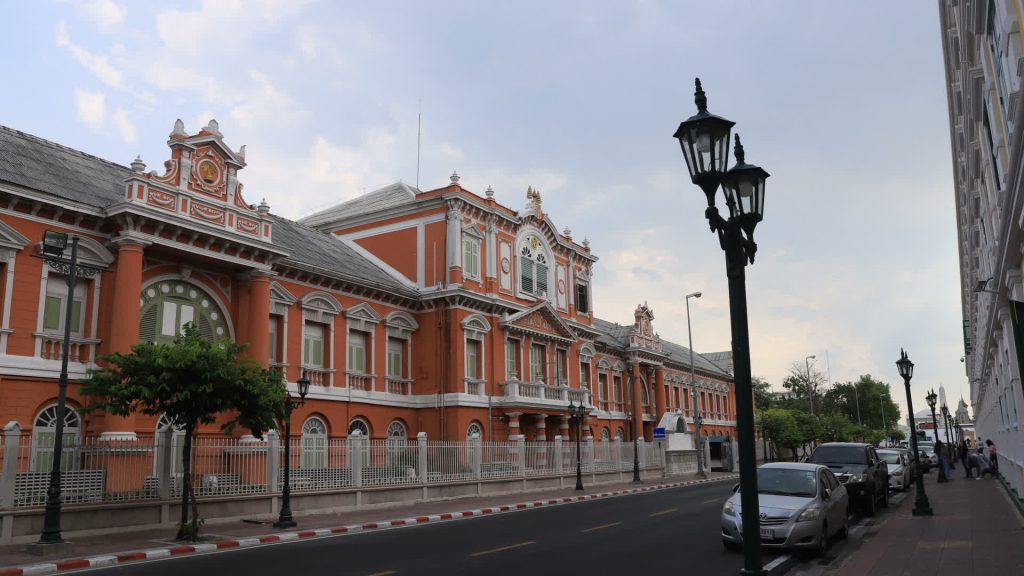
In 1851 King Mongkut (Rama IV) began his reign by ordering the digging of a new city moat, Khlong Phadung Krung Kasem. In his own words, “The previous three kings ordered canals to be excavated for the people’s benefit. These days, as the nation has attained prosperity and the population of the capital has increased greatly, the city area should be expanded. The population of common people has become much larger. Houses and residences of officials and common people are mostly outside the city area.” Khlong Phadung Krung Kasem was dug approximately 1km east of the old city moat Khlong Rop Krung. It starts just upriver from Rama 8 Bridge and runs south for 5.5km rejoining the river opposite the Icon Siam shopping complex. When it was dug, this new city boundary doubled the area of Bangkok.
3. The Difficult Period of Democracy
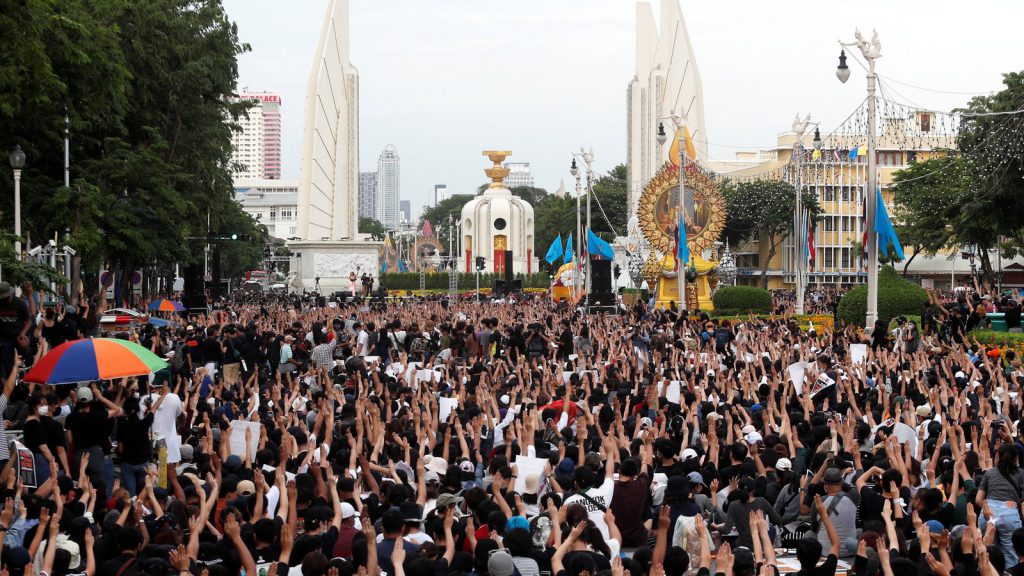
Thailand’s economy crashed during the 1990s, and after several economic reforms, Bangkok’s economy could pick up its pace again. The 21st century brought its own set of difficulties and challenges for Bangkok. In 2006, a bloodless coup overthrew then-Prime Minister Thaksin Shinawatra. Accused of corruption and found guilty in 2008, he is currently living in self-imposed exile. Anti-government demonstrations took place in Thailand in 2008. In 2011, Thaksin’s sister, Yingluck Shinawatra, was elected the Prime Minister. 2013-2014 witnessed politically unstable conditions in the country. Anti-government movements took place during these two years. This resulted in the removal of Yingluck and the establishment of the military junta.
4. Irrigation and Commercialisation
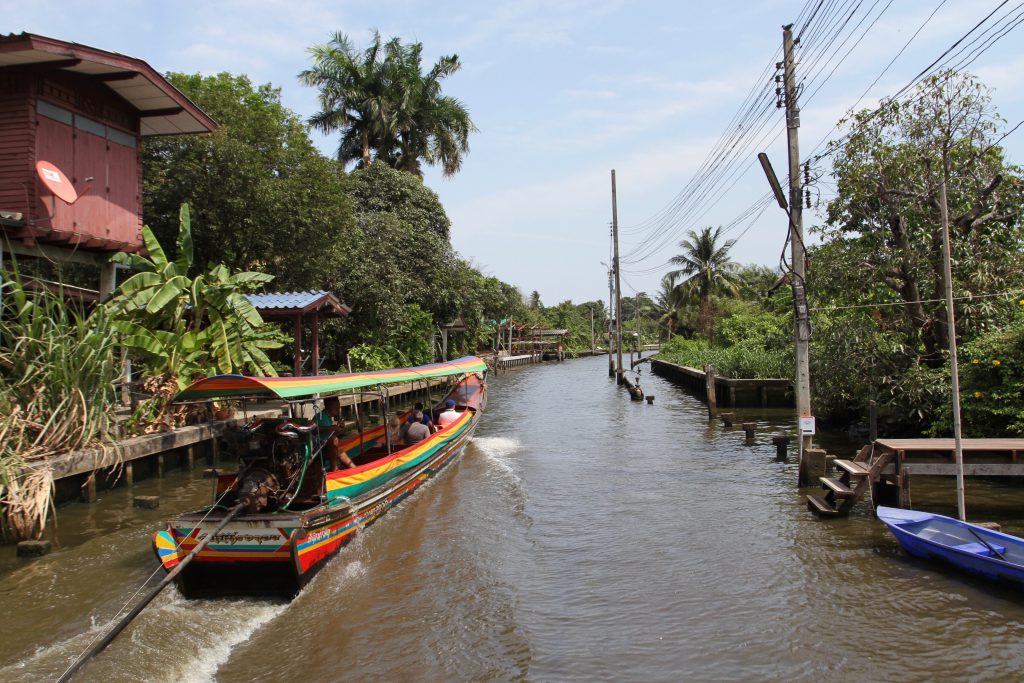
Whilst Siamese governments had invested in major canals to address transportation and military issues, the digging of canals for crop irrigation seems to have been traditionally left to local communities who would adapt the course of rivers and local water courses to suit their needs. But in 1855, Siam signed the Bowring Treaty with Britain, which ended the traditional royal monopolies on trade. This treaty initiated a process of economic transformation in Siam. No longer able to rely on trading monopolies for their income, the Thai elite now turned to cash crops such as sugar cane and rice. This prompted the digging of three major canals west of Bangkok to open up this region for rice cultivation.
5. Modern-Day Bangkok
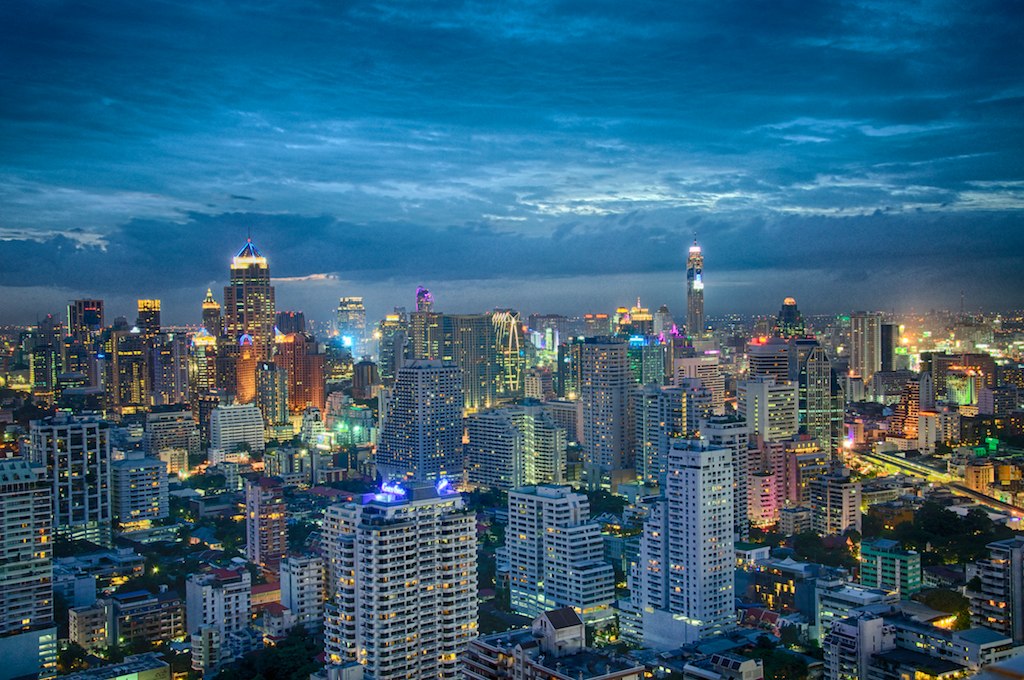
Today, Bangkok is a vibrant city that blends tradition and modernity. It is known for its rich cultural heritage, iconic landmarks, bustling markets, and vibrant street life. Bangkok remains the political, economic, and cultural capital of Thailand, contributing to the country’s growth and serving as a gateway to Southeast Asia.